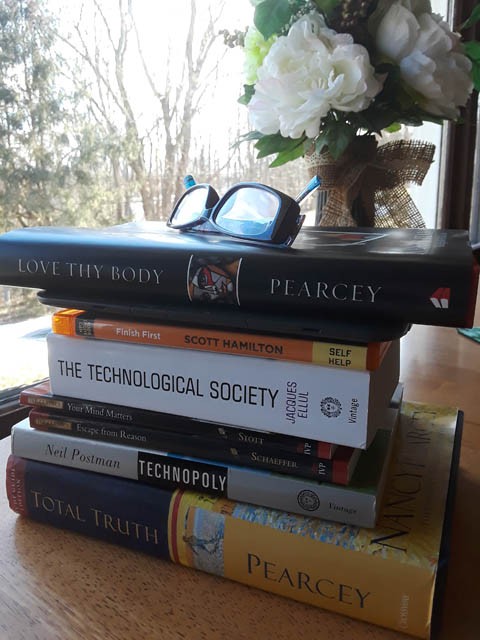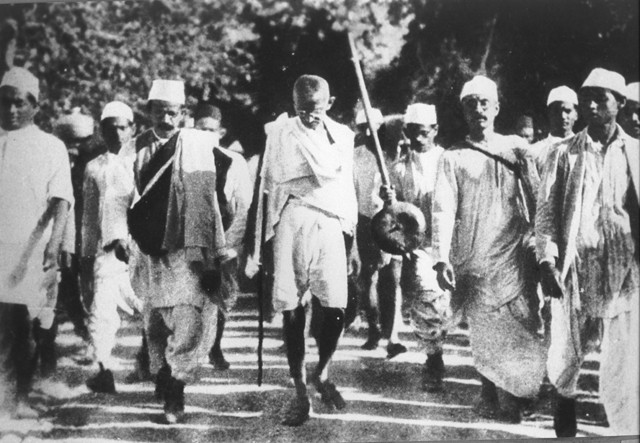Life onscreen
I wanted to pause in my reading of The Next Story and reflect on this passage, where Tim Challies speaks of

our insistence that the Internet is there, that it is a place. We never referred to the space between my mailbox and my friend’s mailbox as a place (letterspace?). Letters were in transit. They were in trucks or on trains, but they were not in a place. When I wrote a letter, I was not entering “letter world.” Similarly, when I watched TV, an inherently non-participatory act, I was still in my living room, not in some strange place between my home and the cable company. But when it comes to the Internet, we talk about entering cyberspace, a place that is really no “place” at all… We take our sense of self, our sense of presence, and transport it into the ethereal world of bits and bytes. Suddenly we are here and there, at a desk in body but in soul or spirit somehow present in cyberspace. And this is new to the human experience. When we venture into this world, this mediated world, we leave our bodies behind. And more and more of us are finding that we actually like it this way, that being able to experience a space free from the limitations of real presence brings a kind of joy.
(I’d cite a page number here, but I’m reading the book on my Kindle. :-/ Yes, I appreciate the irony…)
Even though my screen time is more limited than some, I feel the truth of these words. As I read them, I think about some of the contrasts:
Offline, I make sure I’m showered and groomed before I go out the door and into the world of (non-family) people. Online, I often blog in my bathrobe, typing with one hand, holding the coffee cup in the other.
Offline, I am self-conscious. Am I talking too much? Do I look fat in these jeans? What are they thinking of me? “They” are present and visible. Online, I feel more freedom. “They” (or “you”?) are invisible, though I feel a real acquaintance through their (your) writing voice. I don’t worry about how I look with them (you).
Offline, I often feel disconnected. A conversation may be going on around me, and I may put in my oar here and there. But most of me is still beneath the surface. Only a small percentage of what I think and feel about something ever gets out of my mouth. Online this is probably just as true, but if I write a post about something it feels somehow more complete — maybe because it’s self-originating rather than responsive?
Oh yeah. Self. Offline, it’s not all about me. Online, it can be.
Offline I fumble for words and speak in fragments. Online, I revise.
Offline I often feel like the outsider in the group. Online the walls between cliques aren’t as defined. (It’s weird that I feel this way, because things like “friend connect” and friend counts seem designed to broadcast cliques a person is in. Why don’t these things have the same impact on me as offline cliques?)
There are probably so many more things I could write, but my offline life is calling. So I’ll just leave the question open. How do you experience this contrast between offscreen and onscreen life?



4 Comments
GretchenJoanna
My feelings are similar to yours, Janet. In the physical world, I do have many friends who are dear and real, but with most of them I’m unable to have that total experience of being known in a broader way…someone who never reads anything I write knows so little of me! And usually I don’t think about it, because living a full life is about giving and loving and not about being appreciated. Writing a blog started out as a way to help me think, and expanded to include some friendships that are also not whole, since they miss that crucial being-there-in-the-flesh.
Amy @ Hope Is the Word
I think about my blog a lot. I write reviews and posts in my head. I understand what GretchenJoanna says when she writes that someone who has never read her writings knows little of her. It’s almost like I do have two lives, although I don’t really want it to be like that. It’s just that mainly, I’m afraid to reveal my passions (books, children’s literature, homeschooling) to most people that I know because we don’t have these things in common. I don’t want to appear . . . what? Nerdy? Like someone with a “better-than-thou” attitude because I read instead of watch t.v.? I don’t know. I find it hard to be my authentic self in person, but when I’m “thinking through my fingers,” I think I come closer to it.
Those are my thoughts on this very rainy Friday afternoon. :-)
Janet
I have a lot of those feelings too. I have two incomplete social arenas — online and offline. I like some of the things blogging has revived and cultivated in me. But does it make it into my real life and real relationships? Does my enjoyment of books and words and reflection benefit anyone else? Do they translate into more curiosity and involvement with the real people surrounding me, or do they make me more like Meg Ryan in ‘You’ve Got Mail’ — “So much of life reminds me of something I read in a book, but… isn’t it supposed to be the other way around?”
Mouseprints
What a great discussion! And you expressed your thoughts so well, Janet. I, too, feel the disparity between “real” life and online life. I think what drove me to start my blog was, like Amy said, the need to talk about my passions (books, homeschooling, etc.) with like-minded people, which doesn’t get to happen in my offline life. But I also recognize the danger of getting too caught up in the “revisionist” life created online.
And I keep reminding myself to share more of my passions IRL, because I’ve learned that even when I think no one could possibly be interested, when I go ahead and share, for example, what I’m reading right now with someone, it sometimes sparks some very surprising and interesting conversation. It has also led to a few people contacting me for book recommendations. I guess what I’m saying is I’m learning that there may be a need for just what we have to offer, if we can get over our own personal reticence and be open about our passions. Yeah, we may be dismissed 9 out of 10 times (or 99 out of 100), but that tenth person was looking for someone who shared their passions too.